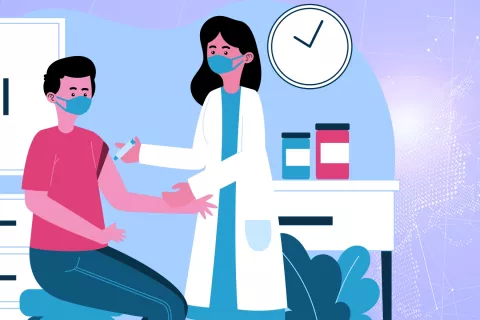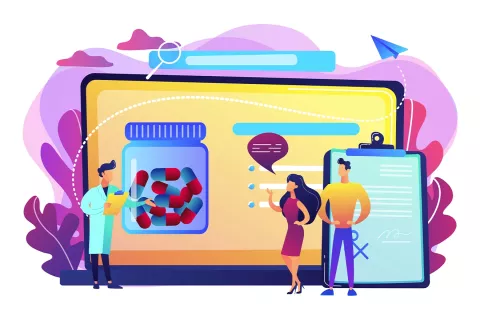
India is a diverse country with a rich heritage and stories of the miraculous healing of life-threatening diseases with magical powders, talismans, magical shields, etc.
Taking advantage of these belief systems, in recent years, a shift in marketing strategies by industries has been observed. There is a rise in toxic and misleading advertisements, which are flooded in every kind of media, suggesting miraculous healing of diseases and toxicant the minds of people and their emotions.
To protect the interests of innocent people from being exploited, an Act was imposed by the Indian government on drug advertisements to prohibit the use of “magical” terms for matters connected therewith. In India, this is done through the Drugs and Magic Remedies (Objectionable Advertisements) Act, 1954. The objective of the Act is to prevent self-medication and practice of self-treatment by the general public and to restrain such advertisements, which have caused unfortunate incidents.
The Act is divided into 16 Sections:
- Sections 1 and 2 describe general information such as the Title or definition used in the Act for the so-called ‘magic remedy’
- Sections 3 to 6 describe the prohibitions under this Act
- Section 7 briefs about penalty
- Section 8 briefs about provision for powers of entry or search and seize by State Government authorities
- Section 9 covers the offenses by companies
- 10th Section details punishable jurisdiction for offenses
- Section 11 aimed at deemed officers
- Section 15 focuses on powers to exempt from the application of this Act
- Section 16 has provisions to make rules under the Act
Sections 3 to 6 are of the prohibitions under this Act which clearly state the kind of advertisements that are prohibited:
- Miscarriage/prevention of conception in women
- Enhancement of sexual improvement and pleasure
- Correction of menstrual disorder in women
- The diagnosis, treatment, remedy, or prevention of any disease/condition/ disorder specified in the schedule or the rules of the Act
According to Section 4 in the Drug and Magic Remedies, no person shall take part in the publication of any advertisement that contains any false claim related to the original drug. A total of 54 diseases/disorders are listed under the Act Section 4(d), which are of serious nature, and prohibit advertisement, suggesting the use of the drug to cure, diagnose, treat, mitigate, or prevent any disease, disorder, or condition.
As per Section 7, if any person acts against the Act, they will be subjected to a penalty. In the first case, it can be only six (06) months or more of imprisonment or can be a fine or both. During the conviction, it may result in one (01) year of imprisonment, a fine, or both.
Amendment to the 1954 Act for Advertisement
Mainly, this Act was challenged in the Supreme Court, and the Supreme Court struck down a part of Clause(d) of Section 3 and the whole of Section 8 as invalid. This Act was therefore amended to eliminate the defects pointed out by the Supreme Court in the case Hamdard Dawakhana v Union of India. An Amendment to this Act was presented by the Union Health Ministry on February 03, 2020. From then on, the Act was called ‘The Drugs and Magic Remedies (Objectionable Advertisements) (Amendment) Act, 2020’.
In Section 2, the definition of ‘Advertisement’ has been amended.
Section 3 was amended to get guidance experts with proper tests and validation for Ayurvedic, Siddha, and Unani Drugs from the Technical Advisory Board constituted under Section 33C of the Drugs and Cosmetics Act, 1940. And true character to be reflected by the object of its promotion.
The penalty in Section 7 was amended. In the case of a first offense, the penalty is up to two (02) years of imprisonment and a fine of up to 10 lakh rupees. In subsequent offenses, it is imprisonment of up to 5 years and a fine of up to 50 lakhs.
In Section 8 of the proposed bill, “Code of Criminal Procedure, 1858 (5 of 1898) has been substituted by ‘the Code of Criminal Procedure, 1973(2 of 1974).’
The number of diseases and health conditions mentioned in the schedule of the Act has also increased.
Reinforcement of the amended law is in process. One needs to have laws to strictly monitor any false claims and to protect people from becoming prey to these claims. Awareness about such quacks will stop people from practicing self-medication after seeing such advertisements. There are many things that can be done as remedial procedures to prohibit drug and magic remedies misleading advertisements if we seriously ensure that the existing laws are enacted.
For reviewing and creating advertising and promotional material, get in touch with Freyr now!









